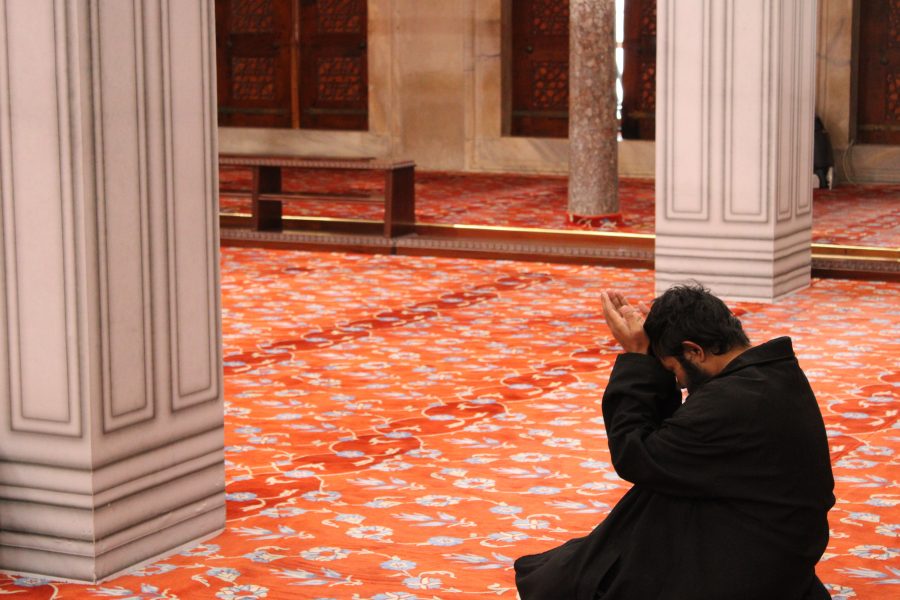There are days which hold more significance and virtue than others. One such day falls on the 10th of Muharram. Ashura is one of the most important days in the Islamic calendar.
Although many of us may be aware of the importance of fasting on this day to follow the Sunnah of the Prophet (saw), this day holds far greater significance than we are often aware of. To understand its importance, here we explore four characteristics of this day and draw inspiration from the legacy of our greatest Prophets (as) to help you make the most of it.
1. A Day of Salvation
Ashura was a Day of Salvation for more than one of the great Prophets (as) in our history. In a narration reported by Imam Ahmad (rh), it was on this day that the Ark of Nuh (as) came to rest on Mount Judi.
It is a reminder, that after the great tests that Nuh (as) endured that the ease and relief will come. We draw lessons from his unswerving resolve and persistence in calling people to the worship of God day and night, for 950 years; for remaining patient whilst he was mocked by his people, with only 10 believers by his side; to his steadfastness despite not having the support of a righteous wife by his side and the pain of witnessing his own son drown before his eyes in the Flood.
More familiar to many of us is that it was a Day of Salvation for the Prophet Musa (as) and the Children of Israel, who were saved from one of the greatest tyrants in history, Firawn and his army. On this Day of Ashura, we recall his courage and bravery, being persecuted and driven from his homeland along with his people, solely because he stood and spoke truth to power.
Musa (as) would bravely declare the truth and challenge Firawn for his claims and his tyrannical ways. All this despite his intense natural fear, exacerbating his speech impediment, with his status as a second-class citizen, and having an arrest warrant issued against him for murder. Despite all of this, Musa (as) was able to overcome his natural anxieties and continued to stand up for what is right even when the threats from Firawn grew graver. His courage is an inspiration to us all, to stand tall and firm in the face of tyranny, oppression and wrongdoing, even where that pushes us far beyond our comfort zone.
In this moment, we are reminded too of his unwavering faith and reliance upon Allah, despite the odds appearing to be against him. As he stood with the great waves of the Red Sea before him and the armies of Firawn behind him, his companions from the Children of Israel lost hope and were despairing,
“And when the two companies saw one another, the companions of Moses said, “Indeed, we are to be overtaken!”
At a time when Musa (as) had reached his limit, both physically and emotionally, he had nowhere else to turn, with the Red Sea in front of him and Firawn behind him. Yet he demonstrated complete and perfect trust in Allah and reliance upon Him, certain that he would be saved: :
“[Moses] said, “No! Indeed, with me is my Lord; He will guide me.”
Though he was trapped between the Sea and Fir’awn with thousands of men, women and children, about to be slaughtered, he remained firm, with absolute faith. He trusted in Allah, obeying His command immediately to “Strike with your staff the sea”, against all rational odds.
And so Allah (swt) fulfilled his hopes in Him, and miraculously parted the Red Sea so that they could escape Firawn.

“Then We inspired to Moses, “Strike with your staff the sea,” and it parted, and each portion was like a great towering mountain. And We advanced thereto the pursuers. And We saved Moses and those with him, all together. Then We drowned the others. Indeed in that is a sign, but most of them were not to be believers. And indeed, your Lord – He is the Exalted in Might, the Merciful.” (Surah Ash Shu’arah, Verses 63-68)
On this Day of Ashura, we should ponder over the might of Allah (swt), how He protected Musa (as) and his followers and delivered them from tyranny and oppression. We should have the same tawwakkul and that same obedience; and know that no matter what we may face, no matter what hardship we endure, no matter how great the waves are before us and how insurmountable they seem, that in calling out to Him and relying upon Him, He too will deliver us from our distress.
2. A Day of Thanksgiving
Whilst it is recommended to fast throughout the month of Muharram, as it is a sacred month and one of the most virtuous to fast after Ramadhan, Ashura is one day you cannot afford to miss.
The Prophet (saw) asked the People of the Book, ‘What is this day that you are fasting?’ The people responded, ‘This is the day in which Allah, Mighty and Majestic, saved Musa, peace be upon him, and the Children of Israel from the drowning but he drowned the Pharaoh. This is the day in which the Ark settled upon the dry land. So Nuh and Musa, peace be upon them, both fasted the day out of thanksgiving to Allah, Mighty and Majestic.’ The Prophet (saw) then said in turn, ‘I have more right to Musa and to fast this day.’ He then commanded his Companions to fast on this day.”
After being reminded of the legacy of the Prophets in being saved from trials by Allah on this Day, we should too give thanks to Him and follow the footsteps of the greatest Prophets.
“The day of `Ashura’ was fasted by the prophets, so you should fast it as well.” (Baqi ibn Makhlid, Musnad)
Ibn ‘Abbas said: “I never saw the Messenger of Allah (saw) so keen to fast any day and give it priority over any other than this day, the day of ‘Ashura.”
In addition to the 10th the Prophet (saw) encouraged us to fast the 9th of Muharram along with it:
“Fast on the day of `Ashura’, be different to the Jews and fast the day before it and a day after.” (Ahmad)
Due to these
narrations, and to err on the side of caution, Ibn Hajar and Ibn al-Qayyim therefore
say that the highest level is to fast all three days – the 9th, 10th
and 11th. That way, if one is unsure when the month started, he is
certain to have caught the blessings of Ashura.
If you cannot do so, then it is recommended to fast the 9th and 10th.
And at the minimum, try your best to fast the 10th.
During your fast do not forget to make du’a, as it is a time when du’as are accepted. ‘There are three prayers that are not rejected: the prayer of a father for his child, the prayer of the fasting person and the prayer of the traveller.’ (Tirmidhi)
3. A Day of Repentance
Ashura is not only the Day Allah delivered the believers from oppression, but it is also a Day of Repentance for His Prophets and true servants.
The Prophet (saw) encouraged the believers to fast in this month due to the status of the day of Ashura:
“If you want to fast a month after Ramadan, then fast Muharram, for it has a day in which Allah forgave an entire people, and He turns to others in repentance in.” [Tirmidhi (841)]

Ibn `Abbas said, “It is the day in which Adam (as) was turned to in repentance.”
Wahb ibn Munabbih said, “Indeed Allah, Exalted be He, revealed to Musa, (as): Command your people that they turn to Me in repentance in the first ten days of Al-Muharram. When the tenth day comes, let them come out to Me so that I might forgive them.” (Lataif wal Ma’arif)
And it was the day our father Adam (as) was placed on this earth. Qatadah said, “We were speaking about the day in which Adam was turned to and it was `Ashura’, Adam came down to Earth on the same day.”
It is said that when Adam (as) was exiled from Paradise, that he wept for that time for a duration of some 300 years for leaving an abode in which he felt no hunger, nakedness, thirst or morning cold. When he saw the Angel Jibril (as) he remembered what had occurred and he cried even harder, to the extent that Jibril (as) asked him, “Adam, what is this weeping that you are doing?”
He said, “How
would I not weep when I have been expelled from the abode of favour to the
abode of hardship. I only weep for having been in the presence of my Lord in
which the abode’s soil was so noble and wholesome. I would hear therein the
voices of the angels.” And in another narration, it is said that Adam (as)
said, “I cry for the abode in which if
you saw it, you would have exhausted yourself in longing in order to reach it.”
On this Day of Ashura we are reminded of our vision: our home. Just as Musa
(as) was exiled from his homeland, so was Adam (as), and we too are reminded of
the home we have left behind and the home we long to return to – Paradise. The
Eternal homecoming that should be the focus of our hopes and our striving each
day.
It was also the day that the repentance of other nations was accepted Allah. `Ali ibn Abi Talib said, “The day of `Ashura’ is the day in which the people of Yunus were turned to when they made the repentance.”
Even in pre-Islamic Arabia, the People of the Book used to fast Ashura and so did the Quraysh Ikrimah said “The Quraish, when any of them committed a sin in the Age of Ignorance that was considered grave in their hearts, they would asked what the repentance would be for such an act. It was then said to them that they should fast on the day of `Ashura’. The Prophet (saw) enjoined us to renew our sincere repentance on the day of `Ashura’, and that whoever should repent to Allah, Mighty and Majestic, of his sins, then indeed Allah will turn to him just as He turned to those before them when they repented.
And so on this Day of Repentance, the Prophet (saw) encouraged us to fast to expiate all our minor sins committed in the past year:
“For fasting the day of ‘Ashura, I hope that Allah will accept it as expiation for the year that went before.” (Muslim).
4. A Day of Giving
On a day that we’re reminded through the legacy of the Prophets (as) to seek Paradise, ward off calamity and extinguish our sins, our thoughts will naturally turn to the deed that he (saw) told us can accomplish all of that: sadaqah.
If you haven’t seized the opportunity yet, will knowing that giving in charity on Ashura, is like giving in charity for the entire year be enough of an incentive?
Abdullah ibn Amr ibn al-As (ra) said: ‘Whoever fasts Ashura, it is as if he has fasted the entire year. And whoever gives charity this day it is like the charity of an entire year.’
On this special day, many of the early generations believed that if one is extra generous on their family, there would be great blessings to be attained throughout the year, due to the narration
“One who generously spends on his family on ‘Ashura’, Allah will be generous on him for the entire year.” (Al-Bayhaqi, Shu’ab al-Iman)

Sufyan ibn Uyaynah (rh) said “I have practiced this [spending on the family] for fifty or sixty years, and have found nothing but good in it.” (Lata’if al-Ma’arif)
The gesture does not need to be extravagant. You can practice this within your own means, by gifting for your children or spouse, or by going that extra mile for a delicious iftar for your family.
On this day, we should also remember those who may not be able to share this blessed day with their close family; members of HHUGS households, who are separated from their parents, spouses and siblings. Those oppressed, women and children who are still facing a great trial, feeling that the waves of tests are insurmountable before them with no one to turn to but Allah.
For these individuals, hardship really is a daily reality. To attain Allah’s mercy, be merciful to others. Why not set up a standing order to provide practical, psychological, and financial support to our beneficiary families? It is the perfect time to give in charity, as your rewards will be multiplied.
Remember the Prophet (saw) told us ‘…the best deeds are those done regularly even if they are few’ (Ibn Mājah).